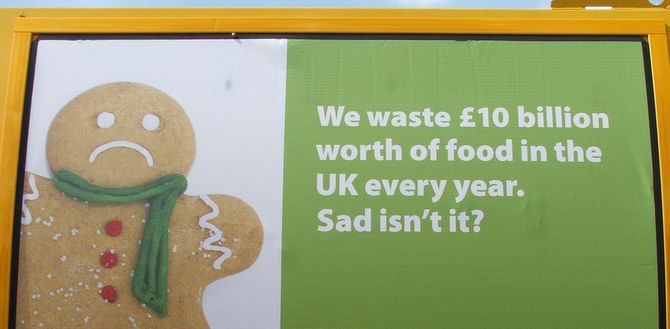In honour of Epigram's Green Week, Online Food Editor Sarah shares her top tips for reducing unnecessary everyday food waste...
Around half the food bought in the UK won’t ever grace our plates: it will got straight from the fridge or cupboard into the bin. Food waste in the UK is reaching epidemic levels: we have an enormous £10 billion, 15 million tonne pile of food waste per year. Worldwide, around 400 people die from hunger every hour: it seems insane that these two figures can sit side by side without serious action being taken to rectify the problem. It’s time we did something to change that.
"If we cut food waste by a quarter we could feed the world's hungry" - the United Nations. #FoodWaste #WeCanDoIt
— OLIO (@OLIO_ex) 21 February 2018
Supermarkets are increasingly being challenged on their food waste policies: the Co-op now sends absolutely none of its food to landfill, Tesco claim that since the end of 2017, they no longer waste any food fit for consumption, and pretty much every UK supermarket is signed up to FareShare, donating unsold food to charities at the end of each day. But supermarket policies are only half the battle. Food waste at home is not only adding up financially, it’s costing the environment. Huge amounts of energy are wasted transporting food halfway across the world, only for it to be thrown in the bin. With that in mind, here are some tips to reduce food waste at home…
1.) Sell-by dates
I was brought up in a household where sell-by dates were myths, and food was completely edible until it obviously wasn’t anymore. If it’s growing mould, it’s not edible, was generally the motto (unless it’s bread, in which case you can pick the mould off). Not necessarily would I myself would advocate, but hey, I survived. The sentiment is very much one I believe in though. Sell-by dates are one of the largest contributors to food waste. Most foods will have at least two dates on their labels: a best before date, and a use-by date (as well as potentially a sell-by date).
A best before date basically means it might look a bit funny (think mottled chocolate), or it might not work as well (slightly stale biscuits or self-raising flour that doesn’t raise quite as well as it might have done). It’s not going to kill you to eat it – within reason. Use-by is possibly worth paying a bit more attention to: especially with regards to dairy and meat. Fresh meat is definitely a no-go after the date, and dairy can survive a couple of days (the sniff test is a classic), but use your common sense. Just because it’s technically ‘off’ doesn’t mean it actually is. Sell-by dates are for supermarket stocking policy more than anything: don't be fooled into thinking it means the food is inedible if it's past a sell-by date.
24 million slices of bread are thrown away every day in the UK: a lot of them needlessly. A tiny bit of mould can happily be picked off. Not only will you save enormous amounts of waste by using common sense with best before/use-by dates, you’ll also save yourself some precious pennies.
2.) Meal plans
Quite simply, the best way to combat food waste is to do some meal planning. It makes me sound like a middle-aged housewife, but it takes 5 minutes before going shopping to think which meals you may or may not be in for, and what you might need for them. Buy the food you need, rather than collecting a random mix of things and throwing half of them away because you simply can’t eat them before they go off. Not only are you benefitting your bank account, you're helping save unnecessary waste.
3.) Fruit and veg
Vegetables can go a bit gross: collapsed, wrinkled peppers, mushy cucumbers, soggy carrots, unhealthily green potatoes, you name it, it’s appeared in our fridge at some point. Communicate with your friends / flatmates and nab their almost-gone-off tomatoes to whip up something exciting / save you a shopping trip, rather than have them chuck them. Cut off the dodgy bits. Sprouting potatoes are still very much edible. There a million and one recipes online to help you use up whatever’s about to go off: use them.
4.) Compost
My garden at home is the proud owner of a rather large compost heap, and composting food waste is second nature to me. The same can’t be said of a lot of Bristol’s student population. Currently, around half of what we send to landfill is food waste where it releases large amounts of methane as it rots.
If you don’t already have one, Bristol City Council will provide you with a lovely brown food waste bin, so that someone, somewhere, can benefit from the nutrient-rich compost all that food waste (from truly mouldy bread to banana skins) will make. And for those of you concerned about the methane mentioned above, composting in a controlled environment means the methane can be collected and converted into bio-gas. Super easy, and super beneficial.
The food waste crisis facing the world needs all of us to do our part: from giant supermarkets, right down to the humble student not chucking some slightly wilted spinach. It all makes a much-needed difference.
Featured image credit: flickr / North Devon Council
Instagram // Epigram Food // Twitter









